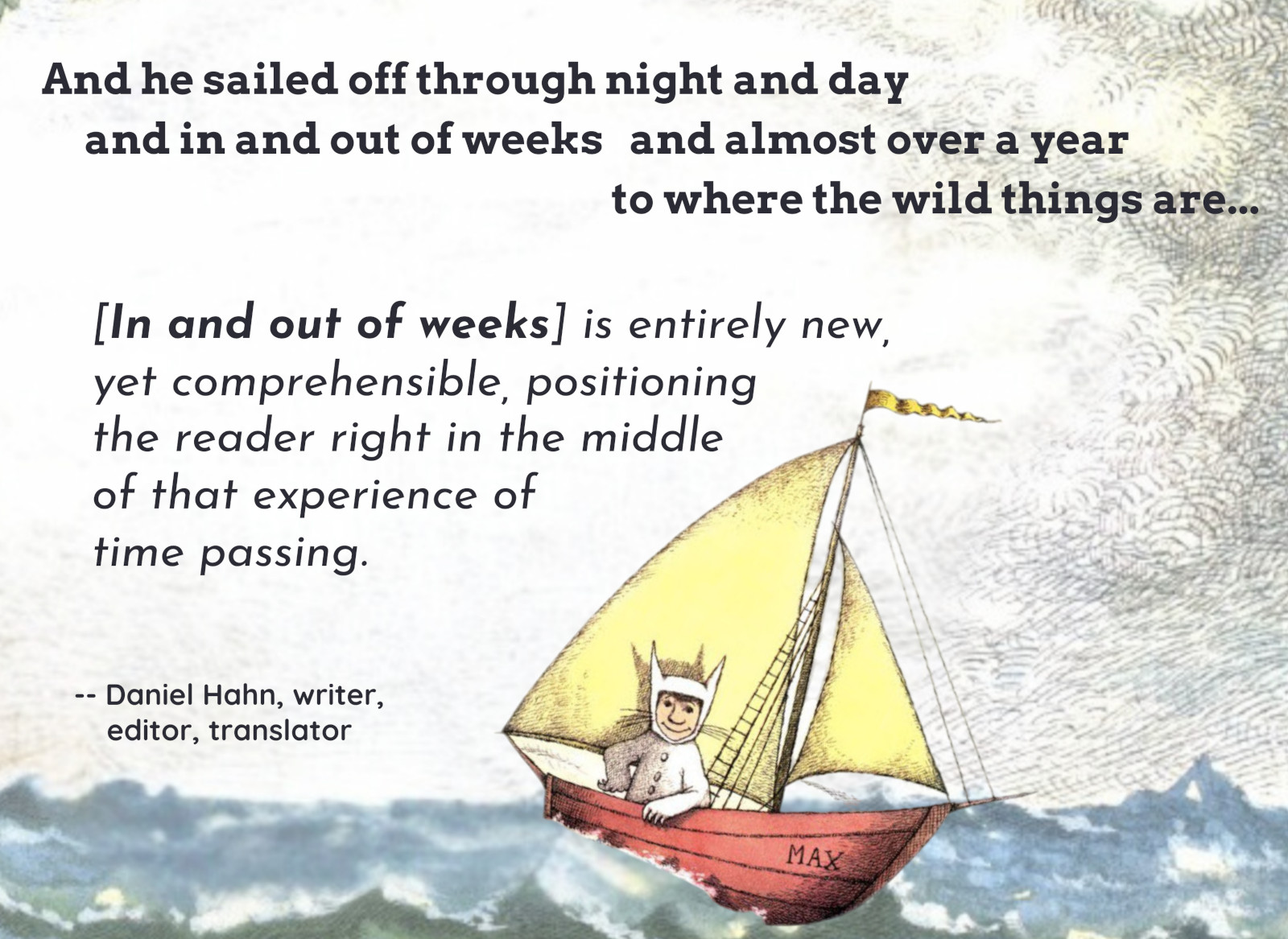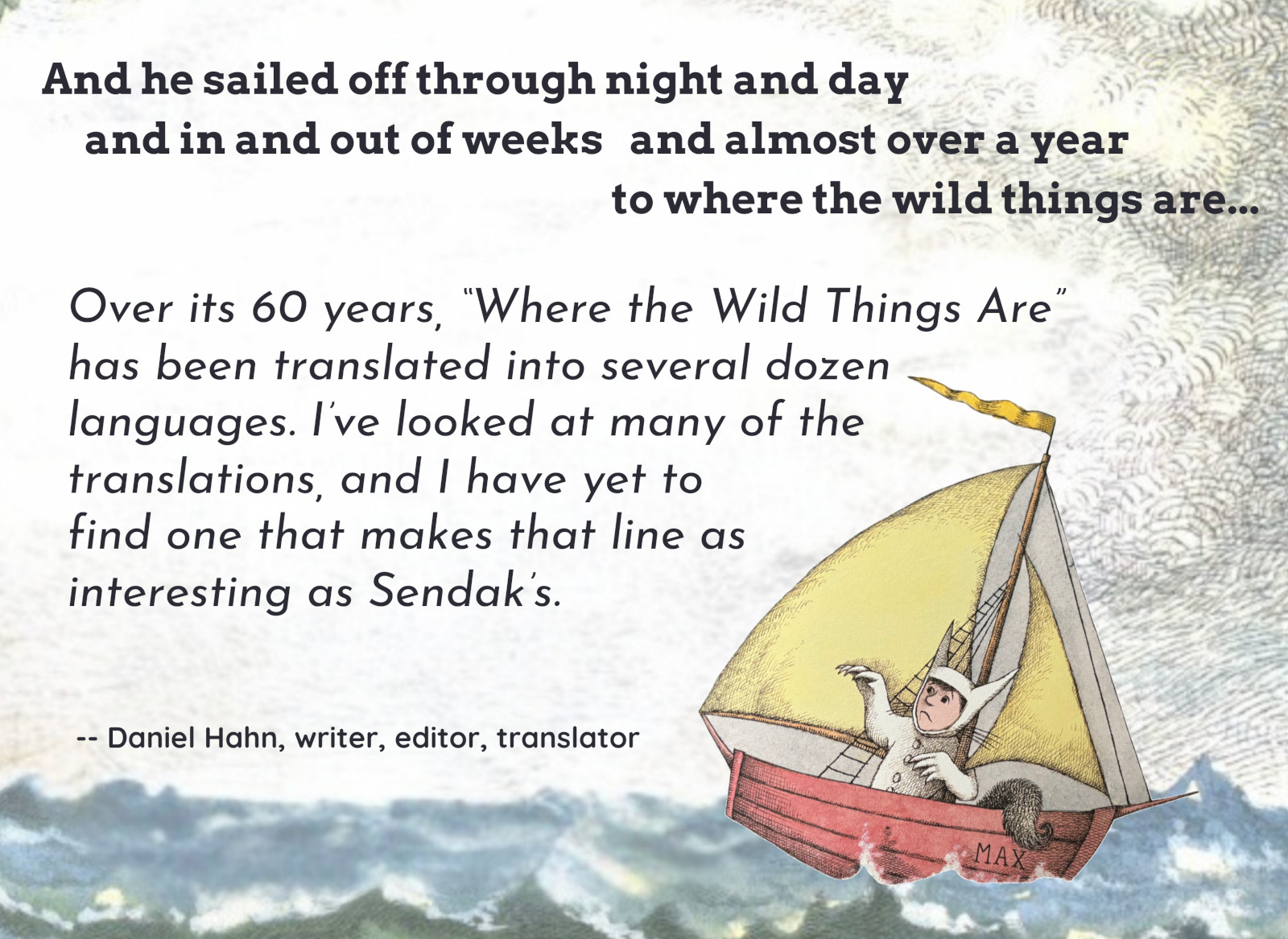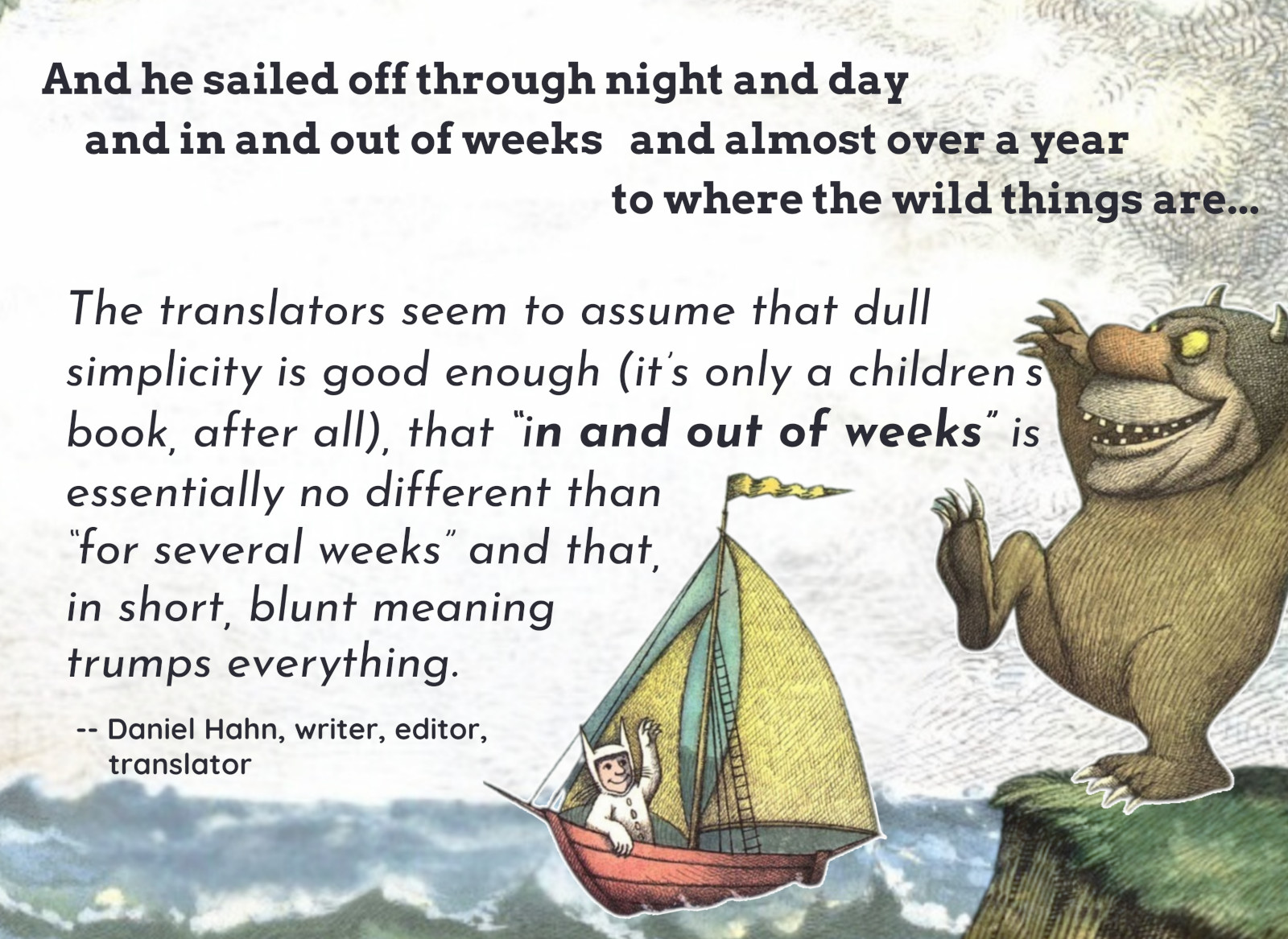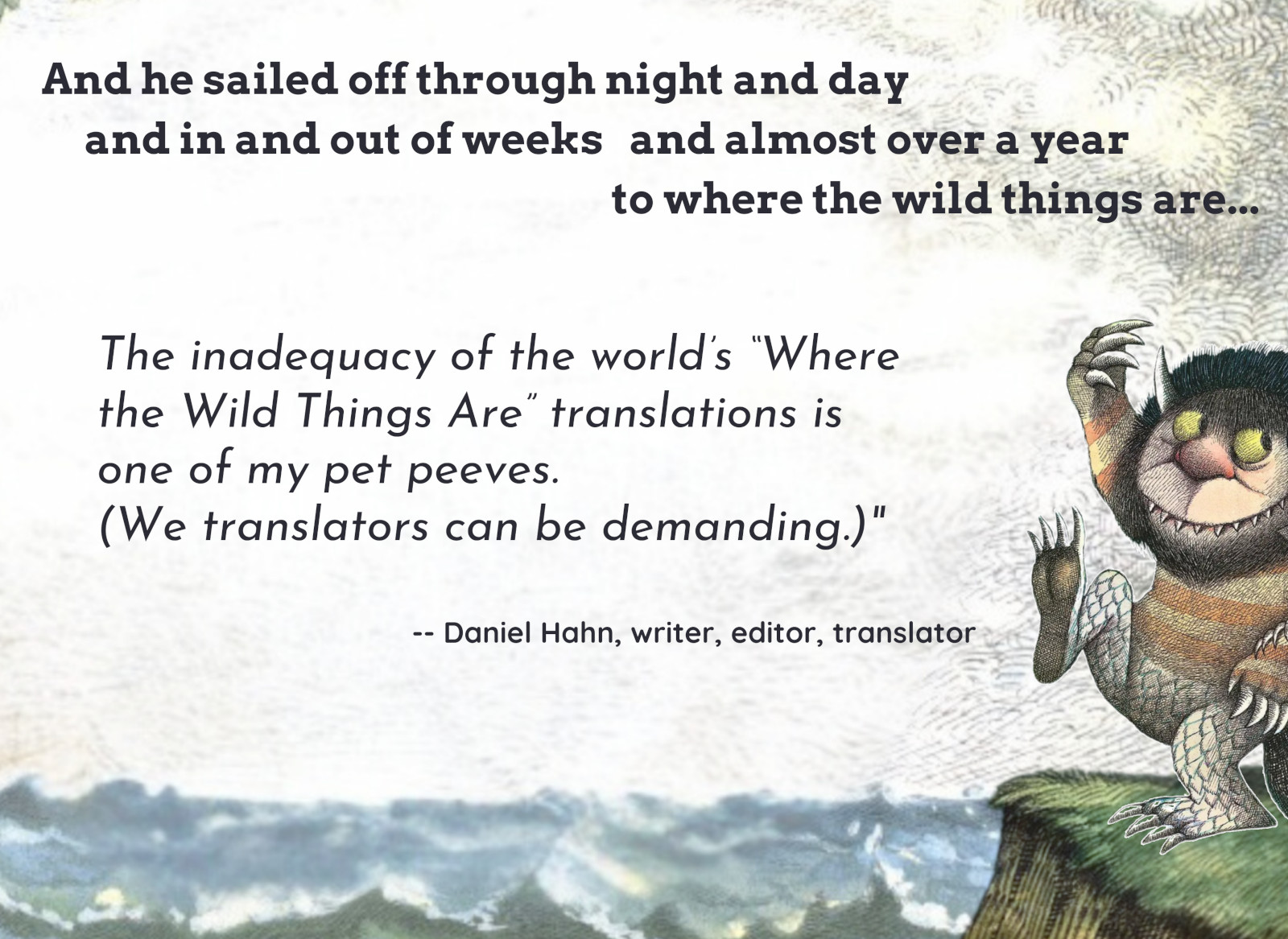In our increasingly global and information-filled world, learning to be a more conscious consumer of translation has become integral to engaging with content from other languages while avoiding misinformation.
We encounter translation all the time...
When you think about the texts you've read and movies you've watched, what's a translation that comes to mind?
A Brief
(and
wild)
Introduction

Most discussions of translation begin with the Bible, written between 500 BCE and 100 CE in Hebrew and Greek, and translated into 3,658 of the world's 7,000 languages.
We'll start smaller, with a children's book, namely Maurice Sendak's

Daniel Hahn, a translator who specializes in children's books, considers a single line...
"The word 'translation' comes, etymologically, from the Latin for 'bearing across'. It is normally supposed that something always gets lost in translation; I cling, obstinately, to the notion that something can also be gained"
Against "Blunt Meaning"
Daniel Hahn argues that blunt meaning alone, when it comes to translation, is not enough. Why? Why is "In and out of weeks" not the same as "For a few weeks?"
A Possible Explanation:
The best uses of language function on different levels. In the case of "in and out of weeks," we understand its blunt meaning (time is passing), but we also recognize in its construction something else about time: it doesn't always feel linear or quanitifiable to us. Because "in and out" has a separate meaning from the idea of time passing, stitching the two concepts together asks us to consider that trying to quantify the number of days or weeks is meaningless. To Max the time feels epic even if to us it might be merely minutes.
A good translation aspires to capture all the effects of the language that are meaningful to the original text, including denotational and connotational meanings as well as the brevity, colloquial simplicity, and easy rhythm of the line.
A very Short Experiment
The line below is from Shakespeare's The Merry Wives of Windsor (Act 3, Scene 5), where Falstaff descrbes the basket of dirty laundry he was stuffed into to avoid discovery by Mistress Page's husband. Try translating it into modern English.
"there was the rankest compound of villainous smell that ever offended nostril"
Possible Translations:
There are infinite ways to "translate" this line. Each translator hears and renders the elements of the original language differenty.
At last, A short briefing on the bible
More on the Bible and its many translations later...




